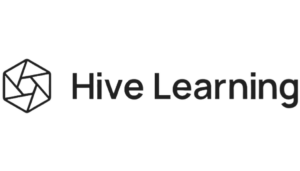HRD Roundtable Report: Driving better working practices through the realignment and reprioritisation of people managers
- 7 Min Read
Regardless of the terminology used, phrases such as the great resignation, or quiet quitting, have been around for some time. As we return to the physical workplace, we’re hearing increasingly more from our employees, whether it’s concerns around trust, or certain approaches to measuring productivity. But what are we hearing from your people managers? How […]
- Event Types
- Date of Event: Oct 27, 2022


Regardless of the terminology used, phrases such as the great resignation, or quiet quitting, have been around for some time. As we return to the physical workplace, we’re hearing increasingly more from our employees, whether it’s concerns around trust, or certain approaches to measuring productivity. But what are we hearing from your people managers? How can the ineffective prioritisation of tasks by managers fuel unsustainable working practices? When every task is deemed critical, what methods should managers consider in communicating the prioritisation of tasks? Further, how can you encourage your people managers to use data to stay close to the feelings and sentiments of their people?
On Thursday 27th October 2022, HRD Connect hosted a group of senior HR and people leaders to discuss these questions in a virtual roundtable that was led by Victoria Pelletier, Managing Director, Accenture, and supported by Andre Worwood, Modern Work Lead, Microsoft. The group discussed how encouraging people managers to adopt positive behaviours of reprioritisation, along with the active use of data, will filter down into their teams, driving better working practices and environments. The session was conducted under Chatham House rules so while this write-up will highlight key discussion points and takeaways, all participants are anonymized.
Measuring productivity
The group agreed the pandemic has dramatically changed the way they measure productivity, especially when it comes to working from home. What worked then, doesn’t necessarily work now. One participant shared that they’re struggling as they want to encourage their people to come into the office but need to tread carefully to retain talent. Layered on top of this is the challenge that those who were trained during the pandemic aren’t at the same skills level as those trained in person. How do they communicate impactfully that coming into the office will help their development, and consequently, their productivity levels?
What’s being used to measure people’s success?
Often, many don’t have any formal processes in place to measure success. The majority relies heavily on employee engagement surveys, along with people metrics, such as retention, tenure, etc. Long-term success is realised through having clear expectations for your people, coupled with effective measurement tools.
One member of the group shared that a strategy they use to measure people’s success is creating two dedicated connection points a year with someone more senior in the company. The first one focuses on the core priorities for that employee, and the second reflects on learnings following the first connection point, along with the personal development milestones.
Employee engagement tools make a significant difference as they allow people leaders to conduct a sense check with their people, along with sharing feedback directly with managers to action. It can be a big task and requires a lot from the manager to have the necessary conversations off the back of what the feedback is saying, but the group’s experiences with such tools stressed the impactful results they deliver.
Coaching leaders on trust
With large numbers of employees pushing to safeguard their flexible working privileges, it requires managers to trust, and monitor their people more heavily, often through more regular touchpoints. One participant divulged that they aren’t doing enough to coach their leaders to build trust amongst their team when it comes to measuring remote productivity, especially given they’re considering the use of monetary incentives to encourage people back to the office.
On the concept of trust, Andre from Microsoft expressed that we’re in an incredibly unique moment in time as we’re experiencing a sense of ‘productivity paranoia.’ The reality of this concept is highlighted by Microsoft’s recent survey that reported 87% of employees feel they are productive regardless of where they’re working, whereas only 12% of leaders felt that their people are productive in general. We’re all acutely aware our people are busier than ever, so we must overcome this paranoia, by building trust to close the gap. Trust, Andre noted, can be derived from giving people a sense of choice. For instance, if people want to come back into the office, and gain that human interaction, it’s key for leaders to acknowledge this by giving their people the choice to decide.
Developing people manager skillsets
Some managers, who become managers during COVID, are struggling with their in-office approach, which feels extremely pressurised compared to being remote. One participant shared a manager framework they launched called the ‘model coach care.’ In simple terms, are they modelling the best possible manager they can? Are they coaching rather than telling? Are they caring for their people?
One participant shared that they’ve delivered workshops specifically for people managers on how to tackle conversations with their team when their cameras are consistently turned off. How might this person be feeling? How can they support them? Some leaders are now questioning why this training is coming now when they’ve been managing their teams remotely for years. The group agreed that this is because some managers, not all, have picked up unhelpful behaviours during the pandemic that now need to be unpicked.
How to have meaningful, people focused, conversations
The group agreed on the importance of engagement surveys and questionnaires but stressed the importance of meaningful conversations amongst managers and their people, not only as a top-down directive but for the manager to feel empowered to have them without relying on questionnaire insights.
It must be made easy for people to have open and impactful conversations with their managers, whether it’s about career development or other more sensitive topics. If the experience of doing so is straightforward, then they’ll happen more often and deliver better results. This can be achieved through centralised processes, which are consistently delivered across the business. It removes the narrative of ‘this team does it one way, that team another.’ One participant said if you’ve got the right culture, with the management community moving in the right direction, supported by technology, the needle will naturally move in the right direction.
Meaningful, impactful conversations feed into all parts of the business. One participant shared that they are incredibly important in gaining insight into their hybrid policy. Using a system to understand who and when people are coming into the office, has allowed them to focus on the well-being side of things, with a specific focus on who isn’t coming into the office. This allows them to press on why they aren’t coming in and what are the barriers to doing so are.
One roundtable participant shared they had found a huge amount of success in creating spaces that allow for different conversations than the task-based discussions that happen in most 121s. Managers must be encouraged to ask their people what’s on their minds, how are they feeling right now, or have you got the right work-life balance. Victoria supported this suggestion by sharing her philosophy of there are no schedules, just deliverables. People managers must be clear that they don’t need to communicate schedules, so long as the work is getting done.
The skills pipeline
Skills are the most critical part of the conversation here, and much of the group agreed. For the Gen-Z workforce, their job stability is defined by the investment in skills and staying relevant for the future. HR and people leaders must take on that consultative role within the business and ask what skills we have, what will we need in 5-year time, and how do we build future leaders.
There is only so much talent you can attract to your company; the big jump sits in building skills internally. Leaders must reengage their employees, actively give them opportunities, which allow people to learn, and not just through certifications and exams.
Victoria closed the conversation by highlighting the key concepts discussed during the roundtable; employee engagement, the need to build skills, and that culture is the outcome of the leaders. There is no silver bullet, and success in driving better working practices will always be multifaceted.








